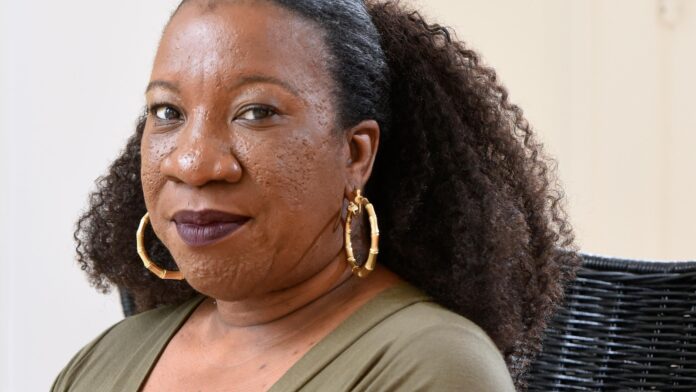NEW YORK — Tarana Burke says people always wonder “what’s next?” for the #MeToo movement, the broad approach to sexual misconduct and abuse that she initiated seven years ago.
This week, Burke, who coined the term “me too” decades ago in his work with survivors of sexual assault and saw it go viral in 2017 with the Harvey Weinstein case, has two ready-made answers.
On Tuesday, the organization she leads, called Me Too. International, announced an initiative that is intended to be truly international in scope: a so-called global network to work with groups in 33 countries around the world to combat sexual violence.
On the same day, a New York courtroom saw the latest high-profile case involving an influential man accused of abusing his power and privilege to commit sexual assault: mogul Sean “Diddy” Combs, who sent to prison to await trial in his federal sex trafficking case.
In an interview, Burke said the emerging details, which accuse Combs of a sordid series of sex crimes, were “horrifying.” But she found solace, she said, in knowing that it was the cultural shift brought about by #MeToo that brought the case to light in the first place.
Burke noted that the original lawsuit filed against Combs last November, by his ex-girlfriend Cassie, whose legal name is Casandra Ventura, was made possible by a New York “lookback” law, the Adult Survivors Act, which allows people who allege sexual abuse to file civil lawsuits after the statute of limitations has expired.
“The Lookback Act … was a direct result of survivor organizing as part of the #MeToo movement,” Burke said. “All of these things are connected. Survivors have been pushing really hard that we need this law. This is directly related to the power of the movement.”
Another, broader effect of the movement, she says, is that victims now feel empowered to come forward because they have more confidence that they will be believed.
“This new case is no different than so many that we’ve seen,” Burke said, referring to the Weinstein and Bill Cosby cases, “where you have an incredibly powerful and privileged person who decides to take advantage of it. The beautiful thing, though, is that … because of the shift that we’ve seen after #MeToo went viral, these things are now public. And now, when someone comes forward and says, ‘This person did me wrong,’ people take it more seriously.”
“Power and privilege are no longer a complete cover for people who choose to abuse and harm,” Burke said. “And as far as what happens next (for #MeToo) — this IS what’s going to happen next, the exposure of so much corruption and abuse of power and harm, what’s going to happen next is all these laws and (other) things that have happened, and we just have to keep building and building.”
Burke was in New York on Tuesday to announce her plans at the Ford Foundation’s Free Future conference. the organization’s new Global Network to combat sexual and gender-based violence. The foundation has pledged the first $1 million of the $5 million that Me Too. International is trying to raise, Burke said.
“After #MeToo went viral, I had tons of people reaching out from all over the world,” she said. “They started their own work or they built on what they were already doing.”
And they wanted to know how they could join forces. “On the one hand, I don’t have ownership — no one can have ownership of a social justice movement,” Burke said. “But on the other hand, there’s a certain ideology and perspective that we’re working under.”
Nearly five years of meetings and discussions have produced a plan for Metoo. International and the Global Fund for Women to join 134 groups in 33 countries — primarily in Latin America, North America, the Caribbean and Africa — to take collective action against sexual violence. The organization defines sexual violence as “a sexual act committed or attempted by a person without freely given consent.”
Burke said her first goal is “to take the cachet of #MeToo and make sure that we can expand that in a way that is meant to shed light on the work that’s happening, but also on resources and collective action. What does it look like when not only are women in Latin America organizing around (certain) issues, but women in Southeast Asia and women in Africa are also organizing for Guatemala, or vice versa?
“We don’t just come together to talk,” she said. “We come together to build community, but we come together to take action together.”



